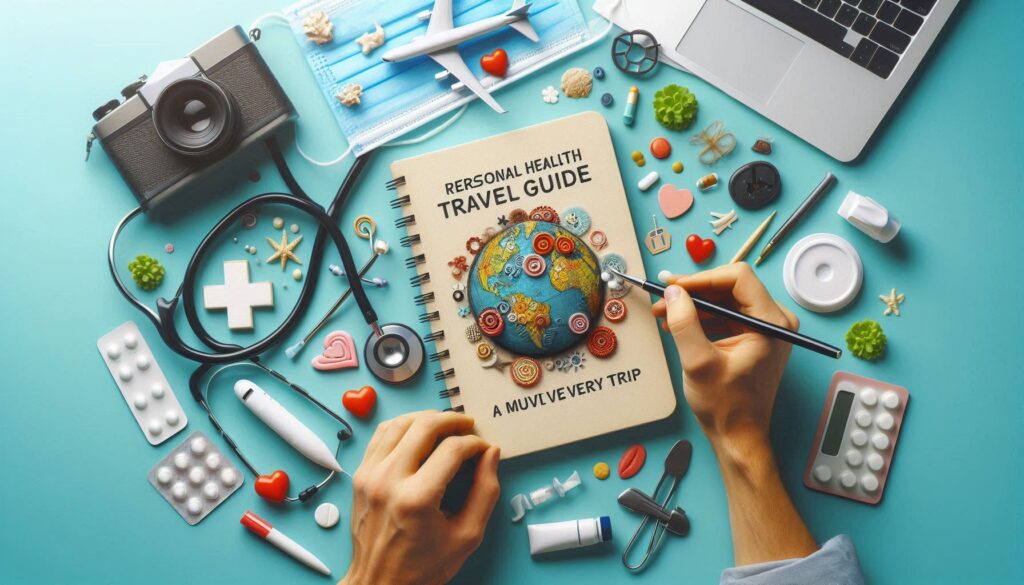Air travel opens up a world of exciting destinations, but long flights can take a toll on your body. From dehydration and jet lag to cramped seating and exposure to germs, flying can disrupt your routine and leave you feeling fatigued upon arrival. Fortunately, a little preparation can go a long way in ensuring a comfortable, healthy journey. Whether you’re traveling for business or leisure, these essential tips will help you stay refreshed and ready to explore when you land.
1. Hydration is Key
Airplane cabins have significantly lower humidity levels than what your body is used to, leading to dehydration. Staying hydrated during a flight is one of the most effective ways to combat fatigue, dry skin, and headaches. Here’s how to stay hydrated:
- Drink Plenty of Water: Aim for at least 8 ounces of water for every hour of flying. Bring a reusable water bottle and refill it after passing through security.
- Avoid Excess Caffeine and Alcohol: Both can dehydrate your body further, so limit your intake during the flight.
- Electrolyte Boosts: Consider packing electrolyte tablets or powders to replenish lost minerals and keep your energy levels steady.
2. Combat Jet Lag Before It Hits
Crossing time zones can throw your body’s internal clock off balance, making it difficult to adjust to your destination. Minimize the effects of jet lag with these strategies:
- Gradually Shift Your Schedule: Start adjusting your sleep and meal times a few days before departure to align with your destination’s time zone.
- Expose Yourself to Natural Light: Upon arrival, spend time outdoors to help your body reset its circadian rhythm.
- Consider Melatonin: A low dose of melatonin may help regulate your sleep patterns, but use it under guidance if you’re not familiar with it.
3. Protect Your Immune System
Airports and airplanes expose you to many people, increasing your risk of catching a cold or other illness. Strengthen your immune system to stay healthy while flying:
- Pack Hand Sanitizer and Wipes: Clean your seat area, tray table, and armrests with disinfectant wipes before settling in.
- Take Immune-Boosting Supplements: Consider vitamin C, zinc, or elderberry to support your immune system before and during your journey.
- Wear a Mask in Crowded Spaces: Especially during flu season or if traveling to areas where illness is prevalent, wearing a mask adds a layer of protection.
4. Move and Stretch Regularly
Sitting for extended periods can lead to poor circulation, muscle stiffness, and even increase the risk of deep vein thrombosis (DVT). To keep blood flowing:
- Stretch in Your Seat: Rotate your ankles, flex your feet, and stretch your legs periodically.
- Get Up and Walk: Aim to stand and move around the cabin every 1-2 hours if possible.
- Wear Compression Socks: These can improve circulation and prevent swelling in your legs and feet during long flights.
5. Prioritize Rest and Comfort
Getting quality rest on a plane is often easier said than done, but the right tools can make a big difference:
- Invest in a Good Travel Pillow: A supportive neck pillow helps you maintain proper posture and prevents neck pain.
- Use Noise-Canceling Headphones or Earplugs: Drown out cabin noise to create a more restful environment.
- Bring an Eye Mask and Blanket: Block out light and stay warm to promote deeper sleep.
6. Snack Smart and Nourish Your Body
In-flight meals aren’t always the healthiest, and going hours without food can leave you feeling sluggish. Pack nutritious snacks to keep your energy up:
- Opt for Protein-Rich Snacks: Nuts, seeds, and protein bars provide lasting energy.
- Bring Fresh Fruits and Veggies: Hydrating and full of vitamins, these make excellent travel companions.
- Limit Sugary and Processed Foods: High-sugar snacks can cause blood sugar crashes, leaving you feeling more tired.
7. Support Your Digestive System
Changes in altitude, prolonged sitting, and unfamiliar foods can affect your digestion during and after a flight. Keep your digestive system balanced with these tips:
- Probiotics for Gut Health: Consider taking probiotics before and during your trip to maintain healthy digestion.
- Avoid Heavy, Greasy Meals: Opt for lighter foods before and during your flight to prevent discomfort.
- Stay Active Upon Arrival: Walking after landing helps stimulate digestion and reduces bloating.
8. Pack a Health Essentials Kit
Prepare a small health kit to keep you comfortable and ready for any minor issues that may arise during your journey. Include:
- Pain relievers and motion sickness medication
- Eye drops and lip balm to combat cabin dryness
- Antibacterial wipes and hand sanitizer
- Herbal teas or electrolyte packets for hydration
- Sleep aids (natural or prescribed) if needed
Conclusion
Flying doesn’t have to leave you feeling drained and unwell. With a little planning and these practical tips, you can arrive at your destination feeling refreshed and ready for adventure. By prioritizing hydration, rest, and immune support, you’re giving yourself the best chance to enjoy a healthy, stress-free trip. So, pack your essentials and get ready to take off with confidence!


